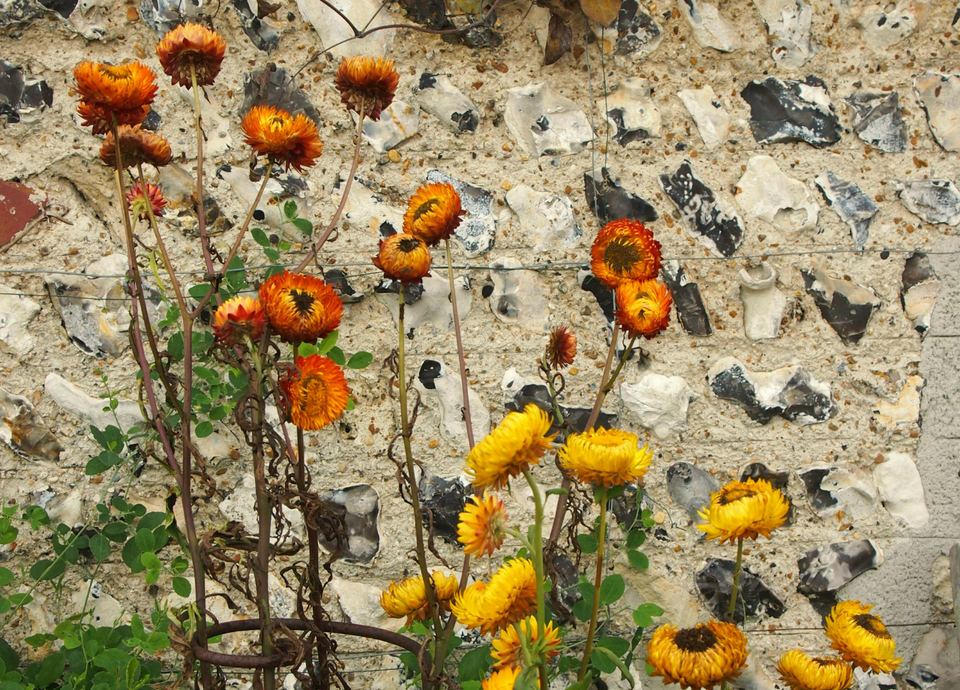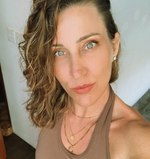The Art of Memento Mori: Embracing Death to Truly Live

When I mentioned to a friend recently that I was contemplating memento mori (the ancient practice of remembering one's mortality), she quickly responded, "Well, that's morbid." I stood there blinking, dust motes dancing in the silence between us, wondering how acknowledging the most fundamental truth of our existence could be labeled "morbid" rather than "essential."
This isn't just about death. It's about life; wild, undomesticated life that refuses to be neatly packaged into productivity metrics and retirement plans.
When Truth Becomes Taboo
Our culture has perfected the art of death denial. We've built entire industries around preserving youth, extending lifespans, and distracting ourselves from the inevitable.
We tuck death away in sterile rooms, speak of it in whispers, and treat it as a failure rather than a completion. We've medicalized, sanitized, and outsourced dying until it's become something that happens elsewhere, to other people, as opposed to the natural conclusion to every single human story, including our own.
But what happens when we turn toward this truth instead of away from it?
Death as Liberator
At a certain point, death became my savior.
I found myself at a crossroads, tear-stained and wine-soaked, paralyzed by the fear of stepping away from the status quo – a path my mother was doing her best to convince me was simply "something we all had to do, even if we didn't like it."
I knew there was more for me, but I feared if I were to follow my true north, I'd fail spectacularly. At the same time, I feared that if I didn't follow it, the unexpressed potential I could feel inside me would never find voice.
The weight of it crushed my chest at night. I'd drink wine to numb the pain of it, and wake gasping with the ache of a life unlived burning in my marrow. Some nights I'd press my palms against my ribs and wonder if this hollow feeling was all there was - if this was what everyone else felt but never named. I knew I couldn't go on like this, I'd rather die.
Then I had a realization:
I realized that death awaited at the end of every path; there was no way of getting around that. And, if my body was eventually returning to soil, regardless of which trail I chose, then what did I actually have to lose?
That moment of clarity didn't just change my mind, it changed my life. Something unclenched in my chest, something ancient and knowing. My shoulders dropped. My breath deepened. My eyes cleared.
I figured I might as well run a bold experiment with my life and see what happened. Death liberated me by showing me I had nothing to lose but time and possibility.
Since then, I've died many times, shedding identities like snake skins, releasing relationships that had served their season, abandoning beliefs that no longer rang true in my bones. With each fall and rise, I've become more authentic, more wonderfully weathered, and more fully alive. I've learned there's only gain on the other side of these little deaths, not loss.
These personal deaths—these surrenders and transformations—stand in stark contrast to the world around me, where endings of any kind are treated as failures to be avoided at all costs. While nature embraces cycles of death and renewal, our modern systems fight against this fundamental rhythm.
The Machine That Never Dies
This tension between natural cycles and our resistance to them is perhaps most visible in modern-day capitalism (which is part of a larger system & world view I often refer to as the Machine). Its core promise reveals everything: infinite growth on a finite planet.
It's not just economically impossible, it's a metaphysical denial of natural cycles. Everything in nature rises and falls, blooms and composts, lives and dies. Everything except the market, which we've mythologized as immortal, ever-expanding, defying Earth's physical limits and the emotional limits of humans.
This system demands we participate in its death denial.
It requires us to act as though resources are endless, as though our bodies won't break from overwork, as though accumulation leads to salvation. The quarterly growth reports, the retirement accounts aimed at a future that isn't guaranteed, the inheritance planning... all elaborate rituals of death denial masquerading as responsibility.
The system's immortality project becomes our own.
We chase job titles that will outlast us, build brands meant to survive us, accumulate possessions we can't take with us, and pedestalize those who hoard more money than they could ever spend in a lifetime... all while the clock winds down on the only truly scarce resource: our time.
When we comply with the Machine's denial of death, the crackling fire of our human spirit gets snuffed out, and we become zombies in our own lives.
This excerpt from psychologist Ernest Becker's Nobel Prize-winning book, The Denial of Death, speaks to this very thing:
The person who seeks to avoid death does it by killing off so much of himself and so large a spectrum of his action-world that he is actually isolating and diminishing himself and becomes as though dead.
Capitalism's Fear of Endings
What terrifies the market most isn't competition or regulation...it's enough. Completion and the radical satisfaction that comes from saying, "This is sufficient. I don't need more", would be the death of it.
Our modern-day form of capitalism can only survive through constant expansion, and to do so, it must convince us that we are perpetually insufficient – that we never have enough, are enough, do enough. It must keep us running, consuming, and producing until our final breath, never allowing us the wisdom that comes from accepting limits.
But what if our most revolutionary act is embracing our mortality? What if facing death allows us to prioritize with a clarity that threatens the very foundation of a system built on distraction and unfulfillable desire?
When you know you're dying (and we all are), suddenly it seems absurd to spend your precious hours doing work you despise to buy things you don't need to impress people you don't even like. Suddenly, the courage rises in your throat to say no to demands that drain your life force, to walk away from golden handcuffs, to risk disapproval for the sake of authenticity.
The Ember of Mortality
Memento mori isn't morbid, it's the most clarifying practice available to us. When we hold our mortality close, like an ember in the palm, it burns away the nonessential, cauterizing our wounds of indecision and illuminating what matters with a light so pure and stark that we can no longer pretend not to see.
Suddenly, those spreadsheets don't matter so much. The opinion of that person you're trying to impress loses its grip. The pursuit of gilded carrots and status symbols seems hollow when measured against the finite heartbeats you have left.
The Machine needs your death denial. It feeds on your desperate attempt to outrun mortality through achievement, accumulation, and distraction. It sells you the lie that meaning comes from climbing ladders that lead nowhere and that purpose is found in producing more.
But death whispers a different truth: You are temporary, your time is finite... use it wisely.
The Campfire Question
Imagine sitting around a campfire, stars scattered like salt above you, the flames illuminating the faces of strangers who will be friends by dawn. Someone asks: "If you knew with absolute certainty you had one year left, how would you live it?"
Feel that question in your body. Let it sink past your thinking mind into your gut, your heart, your bones. What rises? What catches in your throat? What makes your chest ache with longing or your eyes sting with tears?
Whatever rises in that moment - that's your truth and compass. That's what death, the great clarifier, reveals about what truly matters to you beneath all the conditioning and expectation.
That question breaks open the floodgates and helps us to see clearly how much of our energy flows toward things that will mean nothing when we lie down to die. We see the relationships we're neglecting, the creative work we're postponing, the wild places we're not visiting, and the risks we'd like to take but are not.
Practices for Remembering
How might we bring this ancient wisdom into our modern lives? Some possibilities:
- Keep a skull on your desk (the traditional memento mori)
- Visit cemeteries not just for funerals but for contemplation
- Ask yourself each morning: "If this were my last day, would I spend it this way?"
- Practice the Stoic meditation of imagining losing what you value most
- Watch the sunset daily, witnessing the beautiful death that makes way for rebirth
These aren't exercises in morbidity but in clarity. This isn't about nihilism, but about using death's inevitability to cut through the noise of social conditioning and find what truly matters to you.
The Wildness of Living Mortal
As you honestly face and embrace your death, you stop asking permission. You stop waiting for someday, recognizing that this moment, this breath, is all you can count on. You become more present to life, and your priorities change.
In doing so, you become dangerous to systems that require your compliance, because what leverage do they have over someone who understands their time is too precious to waste? What power does social judgment hold when you've already reckoned with your own ending?
I've felt a wild, fierce compassion for those playing immortality games, because I was conditioned to do it myself. Fellow mortals pretending death won't touch them if they don't look too closely at it, and if they focus on just achieving enough, acquiring enough, and controlling enough.
But no amount of denial, in whatever form it takes, will ever stop the inevitable. This is a fate that cannot be avoided.
The irony is that by embracing death, we become fully alive. We stop postponing joy. We cease tolerating soul-crushing work, empty relationships, or values that were never truly ours. We begin to live in alignment with our bone-deep knowing rather than external expectations.
We become outlaws to the religion of endless striving, heretics to the gospel of "more," cowgirls (and boys) who ride fence lines between this world and the mystery beyond. Truly free, connected to the rhythms of nature, and completely alive.
Death is not the opposite of life - it's the counterweight that gives life its sweetness, its urgency, and its meaning. Without death, life would be an endless, meaningless slog. With death, each moment becomes precious beyond measure.
So let's not call this contemplation morbid. Let's call it what it is: the most honest conversation we can have with ourselves, the most radical rejection of a system that profits from our forgetting, and the most direct path to a life that will feel well-lived when we reach its end.
Memento mori. Remember, you will die.
The wild in me recognizes the wild in you, even (especially) in the shadow places where mortality dwells. May we meet there, clear-eyed and unafraid, ready to live while we can.
Chandra Nicole


Comments ()